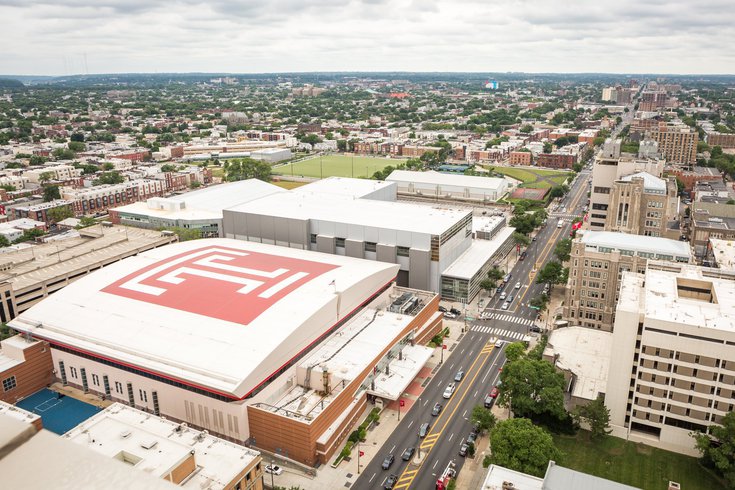
January 20, 2021
 Thom Carroll/for PhillyVoice
Thom Carroll/for PhillyVoice
Temple University students who attend classes that meet in-person at least twice a week must undergo two self-swabs each week as part of a new testing program.
Temple University plans to administer 20,000 COVID-19 tests each week during the spring semester as part of a ramped-up testing program that began this week.
The $9.8 million plan assigns students to one of five testing groups based on the amount of time they spend on campus. Some groups will be tested more frequently than others. Testing also will be available to faculty and staff.
The testing goal far exceeds the university's testing numbers from the fall, when 19,000 coronavirus tests were administered throughout the entire semester, a spokesperson told the Inquirer. The enhanced program is the result of a new medical lab at Temple's medical school that can process up to 26,000 tests per week. .
Students must schedule self-administered, nasal swab tests that will be available at three sites on campus. They will receive test results 12 to 36 hours later.
Students who test negative will be notified by text. Those who test positive will receive a call from Student Health Services with instructions on how to proceed, The Temple News reported.
Students who have received a positive COVID-19 test within the previous 90 days will not need to be tested. But students who have received the first dose of a COVID-19 vaccine still will need to adhere to the testing plan.
If it becomes apparent that a student is not completing their tests, they will "receive a warning" from Temple's Student Health Services, according to the University's newspaper.
The first testing group is comprised of students who live in on-campus housing, take in-person classes that meet at least twice per week or attend in-person classes while living inside one of the six zip codes surrounding Temple. It also includes students who work at campus facilities more than one day per week.
The 4,000 students in the first group must be tested twice a week. Students must schedule their tests in advance using Temple's Patient Health Portal. The bi-weekly tests must be separated by at least one day.
The second group includes 1,200 students who attend in-person classes at least once per week while living outside of the six surrounding zip codes and students who work on campus one day or less per week. These students must be tested once per week.
The third group includes students who only attend online classes, but live inside the six ZIP code range and students who come to campus only to use facilities and services. These students should be tested once weekly.
The fourth group consists of students assigned to clinical rotations, including those in the Lewis Katz School of Medicine. Their schools will routinely offer testing.
The fifth group includes students who only attend online classes and do not come to campus at all. They will not require testing unless they are symptomatic or exposed to someone with COVID-19.
Any faculty or staff member whose work includes regular interactions with students is eligible to be tested twice per week. Those who work on campus but do not routinely encounter students are eligible to be tested once per week.
Though Temple is open for in-person classes, about 87% of instruction will remain online. That's only slightly less than the fall semester, when 95% of instruction switched online after cases spiked within the the first month of classes.
The North Philadelphia university has enacted a variety of health and safety guidelines in addition to its new testing plan, including a contact tracing program, increased sanitizing, the elimination of Spring Break and other precautions.
"As always, the four public health pillars — wearing a mask, washing your hands, keeping six feet of physical distance and monitoring your health — are the best ways to prevent yourself and the broader Temple community from contracting the virus," Senior Director of Student Health Services Mark Denys said. "Please continue practicing these behaviors now and throughout the spring semester. Combined with our testing program, this is the best way for us to be together."
Follow Allie & PhillyVoice on Twitter: @allie___miller | @thePhillyVoice
Like us on Facebook: PhillyVoice
Add Allie's RSS feed to your feed reader
Have a news tip? Let us know.